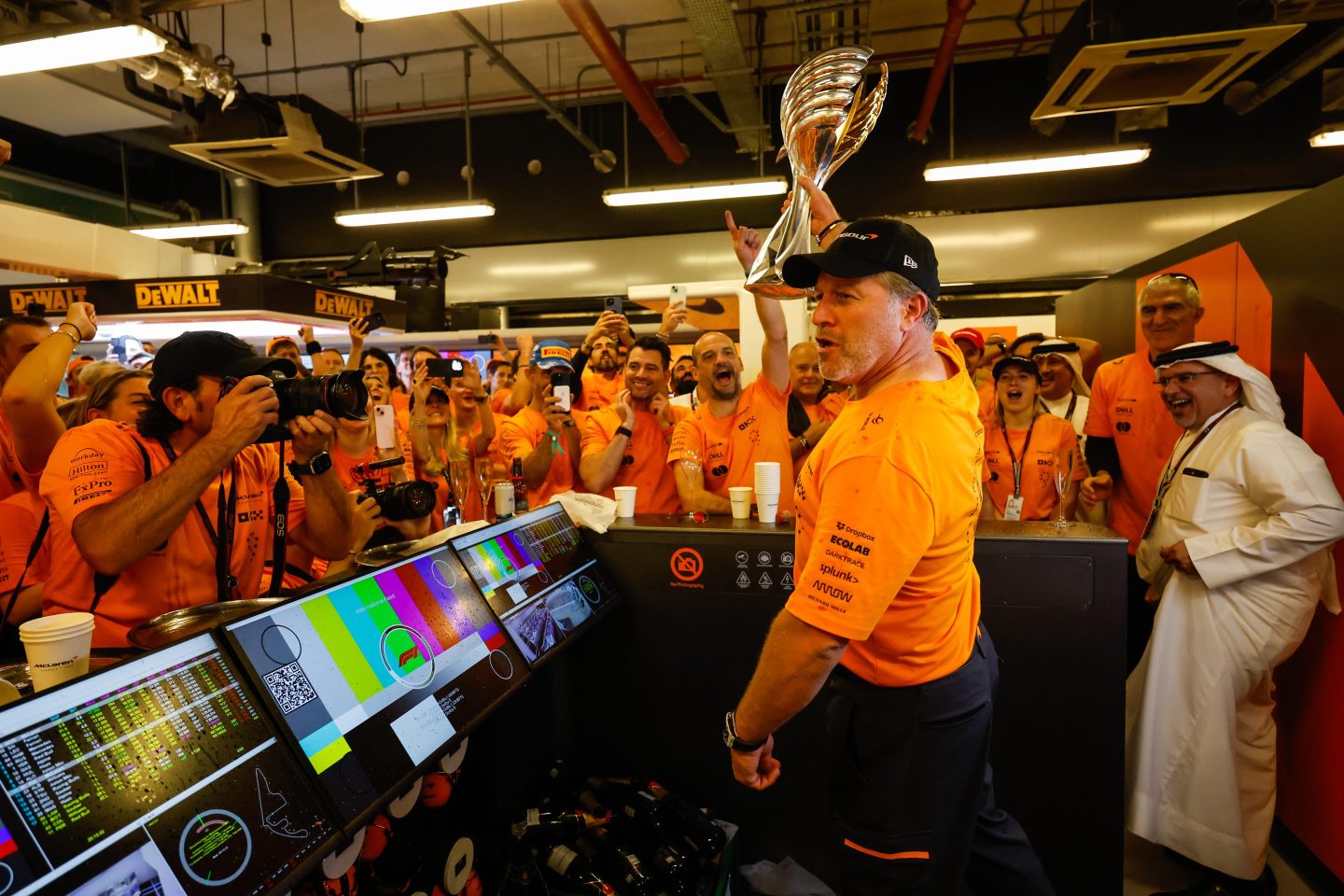Good morning!
Being a CEO is hard. Being the CEO of a racing team that publicly loses year after year is even more challenging.
When Zak Brown left a job as CEO of a sports marketing company to take on the chief role at McLaren back in 2016, the team hadn’t won a Constructors’ Championship, the highest title for F1 teams, since 1998.
But after years of grinding it out in racetracks around the world, the team had a blockbuster year in 2024, beating out Ferrari, Red Bull, and Mercedes to clinch the top title, with six race wins and 21 podium placements by the end of the season.
“At the start of 2023, we had the worst car on the grid,” says Brown. “So what made the difference? The leadership, guidance, and motivation. The leadership team unlocked what was sitting here, which was a championship-caliber group of people who weren’t operating in the right way.”
Brown says that when he first joined McLaren, there was a belief that any performance issues could be blamed on the car’s engine manufacturer. But when the company switched to another engine builder, it became apparent to Brown that there were deeper issues at play.
“There was an arrogance, a denial that once we swapped the power unit we were going to be back to McLaren. And when that didn’t happen it was pretty sobering,” says Brown.
Instead, he focused on changing team leadership, bringing on a new team principal and technical director, and finding ways to fix how the company responds to failure. But he says what really made the difference was embracing what he calls a “no-blame culture.”
‘This means that when mistakes happen, employees aren’t scrambling to figure out who caused it, says Brown. He adds that when working in a competitive environment, it’s all too easy to point fingers at the last person who touched the car; but putting an end to that kind of mindset was a game changer.
“We win and lose together, we back each other up, and we don’t blame each other,” he says. “Mistakes happen, and we learn from them.
Read more on Fortune’s latest interview with McLaren CEO Zak Brown here.
Brit Morse
brit.morse@fortune.com
Around the Table
A round-up of the most important HR headlines.
President Trump’s pick for the EEOC, Andrea Lucas, says she plans on taking aim at the bias she sees in DEI programs. Wall Street Journal
DOGE’s latest cuts to the federal workforce are leaving lots of young civil servants new to the field without jobs. New York Times
A new investigation found that Meta keeps a secret list of ex-employees who are no longer welcome to apply to jobs at the tech giant. Business Insider
Watercooler
Everything you need to know from Fortune.
Testing job candidates. The new administration is asking those who wish to work for it to answer questions about their loyalty to Trump. —Nancy Cook, Saleha Mohsin, Annmarie Hordern, and Bloomberg
Continual pursuit. Robby Starbuck is putting pressure on private companies, even those that have made changes to their DEI programs, to continue to conform to the administration’s new views. —Jeff Green and Bloomberg
Against the grain. Apple cofounder Steve Wozniak criticized fellow tech founder Elon Musk for his mass firings of federal workers. —Irina Ivanova













